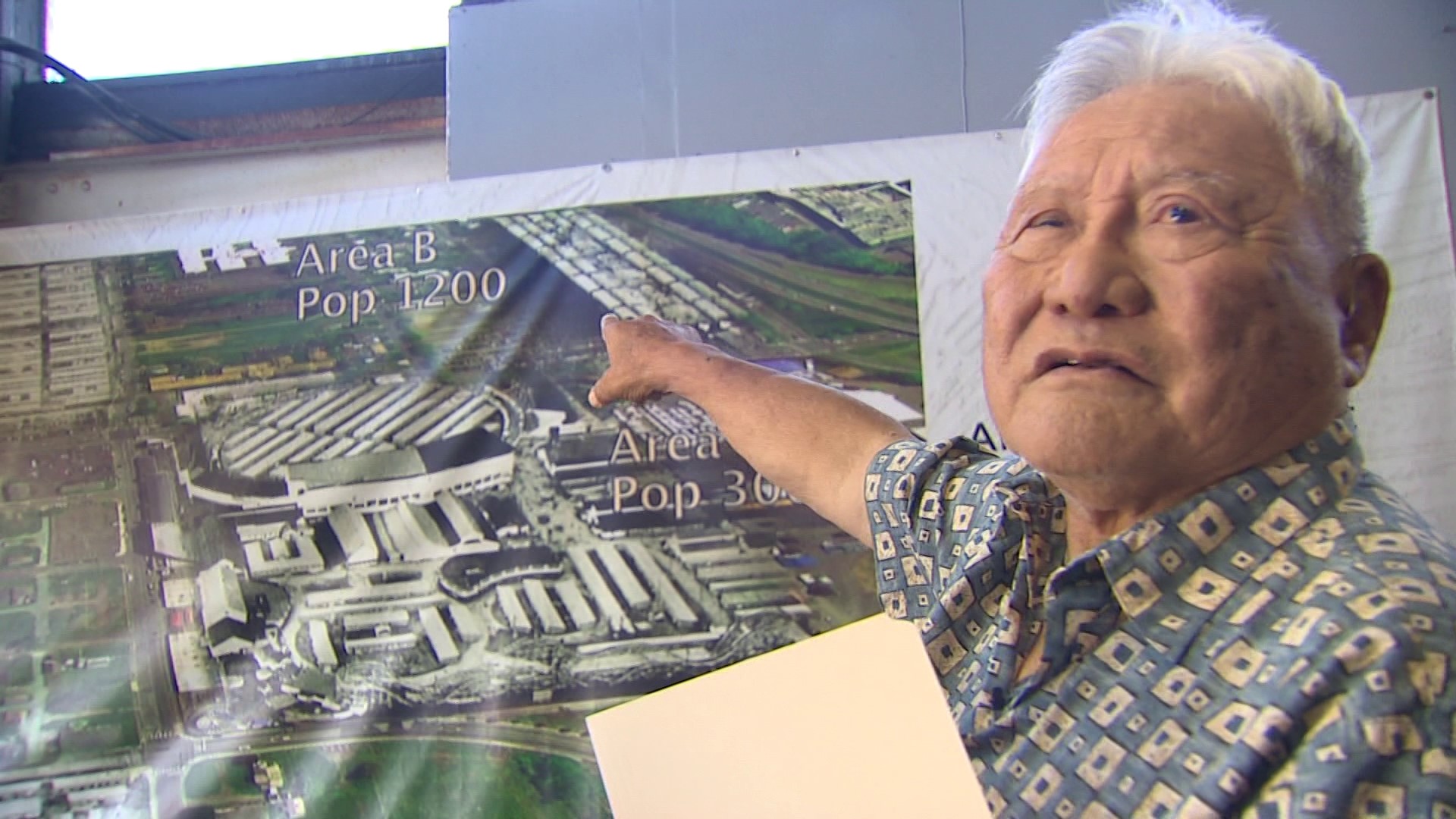PUYALLUP, Wash. — Despite its non-threatening names, “Camp Harmony” and the “Puyallup Assembly Center,” Eileen Yamada Lamphere said the Washington state fairgrounds was clearly a prison during the spring and summer of 1942.
Under order of the U.S. government, in the early days of World War II, as anti-Japanese sentiment was rising, nearly 8,000 Japanese-Americans were forced to live on the fairgrounds.
The Puyallup location was a temporary internment camp, created to house detainees before they were sent to permanent camps across the American west.
Yamada Lamphere, the president of the state’s chapter of the Japanese American Citizens League (JACL), is heading up fundraising efforts to create a permanent gallery recognizing those housed at the fairgrounds.
The “Remembrance Gallery” would have a wall listing the names of those imprisoned and would include an example of what one of the barracks looked like.
Cho Shimizu’s name is on a temporary exhibit, currently on display at the fairgrounds.
Shimizu, now 84, lived at the camp as a four-year-old from May until October 1942.
He remembers his mother was embarrassed to use the restroom, which didn’t offer any stalls or privacy.
“The thing that was bothering me the most was, why was this happening? What did I do wrong,” said Shimizu.
He has written a book about his experiences and would like to see the history permanently recognized at the fairgrounds.
“I want to look at it in the term of future generations and giving kids hope when things like this happen,” said Shimizu.
Yamada Lamphere is excited about the location offered up by fair organizers. It’s across the concourse from one of the popular Fisher Scone booths, so she considers it prime real estate.
“Everyone’s either going to it or coming from it,” said Lamphere.
If the funds can be raised in time, Yamada Lamphere hopes the exhibit can be completed by the start of next year’s Washington State Fair in September 2023.
Donations can be made to the JACL through their website.
“You can’t erase history just by ignoring it or denying it,” said Yamada Lamphere, “The thing for us is not only honoring those that were in prison, there’s a lesson to be learned.”

